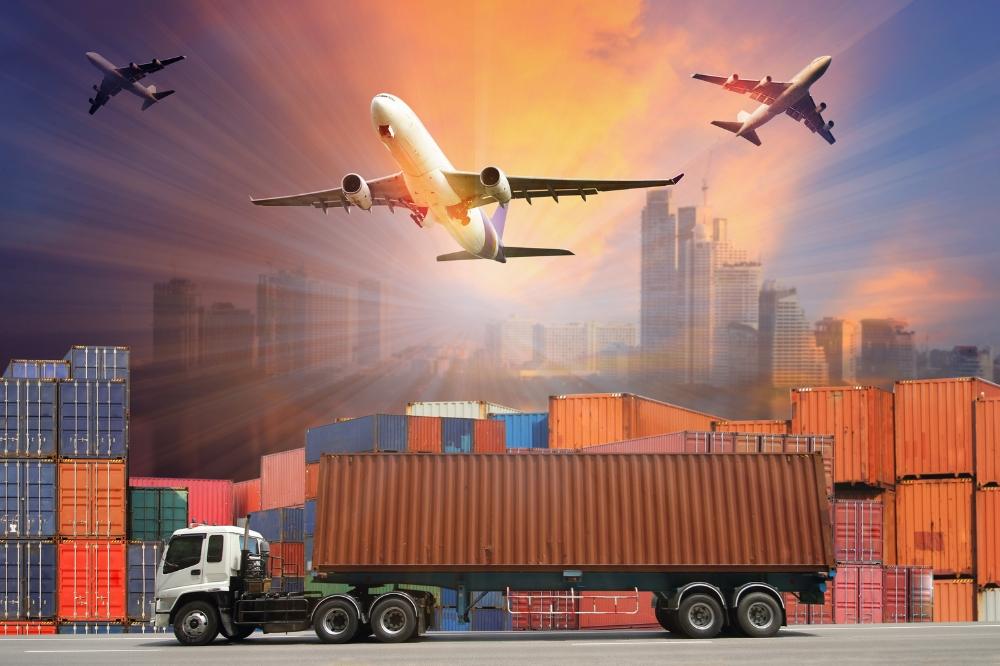The Difference Between Logistics and Supply Chain Management

In today’s interconnected global economy, the terms logistics and supply chain management are often used interchangeably. While they are closely related and work hand-in-hand, they are not the same thing.
Understanding the difference between logistics and supply chain management (SCM) is essential for businesses that want to improve efficiency, reduce costs, and better serve their customers. Whether you're a manufacturer, retailer, or e-commerce business, knowing where logistics ends and supply chain management begins will help you make more informed decisions.
In this article, we’ll break down the key differences between logistics and supply chain management, how they complement each other, and why both are vital to a business’s success.
What Is Logistics?
Logistics refers to the planning, implementation, and coordination of the movement and storage of goods, services, and information — from the point of origin to the point of consumption.
It focuses on the tactical execution of activities such as:
-
Transportation (inbound and outbound)
-
Warehousing and inventory storage
-
Order fulfillment and distribution
-
Packaging and labeling
-
Returns (reverse logistics)
In simpler terms, logistics is about getting the right product to the right place at the right time — in the most efficient and cost-effective way.
Key Goals of Logistics:
-
Minimize delivery time and cost
-
Ensure safe handling of products
-
Maintain inventory accuracy
-
Enhance customer satisfaction through timely fulfillment
What Is Supply Chain Management (SCM)?
Supply Chain Management is a broader, more strategic concept that encompasses the entire flow of goods and services — from raw materials to the end customer. It includes logistics, but also incorporates planning, sourcing, production, and overall coordination across all stakeholders in the supply chain.
SCM looks at the end-to-end lifecycle of a product, including:
-
Supplier relationships
-
Demand forecasting and planning
-
Procurement and sourcing
-
Manufacturing and assembly
-
Logistics and delivery
-
Customer service and after-sales support
In short, while logistics focuses on movement and storage, SCM is about managing relationships, strategy, and systems across the entire value chain.
Key Goals of SCM:
-
Optimize the entire supply chain for efficiency and responsiveness
-
Improve collaboration between partners and suppliers
-
Reduce overall operational costs
-
Align supply with demand more accurately
Logistics vs. Supply Chain Management: Key Differences
Here’s a breakdown of how logistics and SCM differ in scope, focus, and function — without using a table:
1. Scope and Focus
-
Logistics is primarily concerned with the transportation and storage of goods. It focuses on internal operations — warehousing, delivery, and inventory movement.
-
SCM covers a much broader scope, including procurement, production, and collaboration with external partners like vendors and distributors. It takes a big-picture approach, aligning all functions to meet business objectives.
2. Objective
-
The goal of logistics is operational efficiency: reducing shipping times, optimizing routes, and ensuring cost-effective deliveries.
-
The goal of supply chain management is strategic optimization: enhancing productivity, minimizing risk, and improving the competitiveness of the entire supply chain.
3. Process Orientation
-
Logistics is process-driven, dealing with the day-to-day movement of goods.
-
SCM is strategy-driven, focusing on long-term planning, relationship management, and system integration.
4. Relationships and Collaboration
-
Logistics typically works within the company or with third-party logistics providers (3PLs).
-
SCM involves multiple stakeholders — suppliers, manufacturers, logistics companies, and retailers — and requires tight coordination across all of them.
How Logistics and SCM Work Together
Although different, logistics and supply chain management are interdependent. Logistics is a subset of SCM — a critical function that helps execute the broader strategy.
For example, if your company plans to expand into a new market, your SCM team will assess the impact on procurement, production, and overall costs. Then, the logistics team will figure out how to store and transport products to that market efficiently.
Strong logistics capabilities enhance supply chain performance. Likewise, effective supply chain planning supports smooth logistics operations.
Real-World Example
Imagine an e-commerce company selling electronics.
-
Supply Chain Management will handle demand forecasting, procurement of components from suppliers, manufacturing schedules, and coordination between global suppliers and warehouses.
-
Logistics will ensure the finished products are stored in fulfillment centers, picked, packed, and delivered to customers on time — with full tracking and reverse logistics for returns.
Both are essential for a seamless operation.
Why Understanding the Difference Matters
Knowing the difference between logistics and supply chain management helps businesses:
-
Improve efficiency: Assign the right teams to handle strategic vs. operational tasks.
-
Enhance customer satisfaction: Deliver products faster and more reliably.
-
Control costs: Avoid unnecessary expenses through better planning and coordination.
-
Scale effectively: Build a supply chain and logistics framework that supports growth.
The Role of Technology in Both
Technology has revolutionized both logistics and supply chain management.
-
In logistics, tools like Transportation Management Systems (TMS), Warehouse Management Systems (WMS), and GPS tracking improve visibility and delivery speed.
-
In SCM, platforms for Enterprise Resource Planning (ERP), demand forecasting, supplier portals, and AI-driven analytics help businesses make smarter strategic decisions.
Integrated systems allow SCM and logistics to communicate in real-time, reducing silos and inefficiencies.
Scanwell Logistics: Bridging Logistics and SCM
Scanwell Logistics, a trusted logistics company in Mumbai, specializes in providing flexible, tech-enabled logistics solutions that align with your broader supply chain strategy. From air and sea freight to warehousing and last-mile delivery, we help businesses streamline operations while staying focused on growth.
Whether you're looking to improve your inventory flow or need support with international shipping, our team ensures your logistics function works seamlessly with your supply chain goals.
Final Thoughts
While logistics and supply chain management are closely connected, they serve different — yet equally critical — roles. Logistics ensures products move efficiently and safely from point A to point B. Supply chain management ensures the entire system — from sourcing raw materials to delivering the finished product — runs smoothly and profitably.
Businesses that understand and optimize both logistics and supply chain management gain a competitive edge, deliver better customer experiences, and build more resilient operations.






